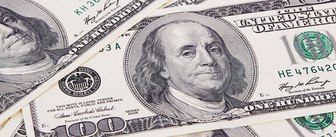2020 has been a year which had upturned consumer behavior and challenged the brands seeking to meet their new needs.
As we round the 365th day of the pandemic, here are some examples of how COVID-19 has affected some of America’s major consumer sectors.
Tech: Over the last year, consumers have been forced to live out much of their daily life online, and YouGov data shows Americans were – compared to last year – more likely to gravitate toward social platform TikTok, Amazon Prime and YouTube for entertainment, Amazon for shopping, and DoorDash for takeout meals. TikTok saw a huge increase in the number of people viewing content, despite taking a perception hit in the summer.
Retail: The COVID-19 crisis has led to more Americans spending time at home – and this may have spurred many on to work on sprucing up their immediate surroundings. Current Customer scores in the home improvement retail sector saw a meaningful boost over the course of the pandemic thanks to US consumers looking to renovate their homes. Whether they’re new homeowners taking advantage of low interest rates or longtime property owners seizing the chance to make overdue changes, they created real commercial opportunities for brands operating in the DIY space.
Finance: YouGov data shows that Venmo’s Current Customer scores increased between February 2020 and 2021. During the pandemic, reports indicated that the mobile payment platform’s users were employing the platform for the purposes of donating, supporting businesses that had moved towards digital services, and even depositing their government stimulus payments into their accounts.
Media: Amid the pandemic, Americans said they were consuming content on TV, streaming platforms, Facebook and YouTube more often. Young adults were significantly more likely to say they were streaming content and browsing social media more than usual during the pandemic. YouGov has been tracking how consumer behaviors and media consumption in 17 countries have changed within the last year. Read the new International Media Consumption 2021 Report here.
Video gaming: Many Americans turned to video games to quash pandemic boredom, making the 2020 launch of the PlayStation 5 and Xbox Series S and X even more interesting. For many, the weeks before Christmas were defined by three words of frustration: out of stock. Even as demand for both consoles continues to outstrip supply, Purchase Intent among Americans in general for the PS5 is at its highest level since the next-gen console was first teased in September 2020.
Consumer goods: Driven by the COVID-19 crisis, Americans flocked to stores to make sure they had enough groceries and supplies to last through lockdowns across the country. American consumers say they spent more on online purchases relating to groceries and toiletries. In-person spending in the US also increased, with nearly two in five saying they spent more money on groceries.
Healthcare: The post-pandemic world will be ushered in by vaccines. The COVID-19 pandemic made (perhaps unlikely) heroes of some big pharmaceutical brands. Just look at how Pfizer’s Reputation scores improved after it announced its 90%-effective vaccine candidate. Though scores peaked in December/January, they are still significantly higher than they were this time last year.
Sports: Major sporting leagues have done their best to adapt to a lack of spectators including supplying carboard cutouts and faking crowd noise. But the latest YouGov data shows a little more than a third of fans of America’s most popular sports are comfortable going to sporting events right now.
Travel: The pandemic threw many hurdles at the travel industry last spring including closing international borders, requiring people to quarantine upon entering many states, and outright banning travelers from specific states. The biggest challenge to the travel industry though was the uncertainty around health risks posed by pandemic, which 54% of Americans said stopped them from traveling. Travel restrictions and safety perceptions were also key factors preventing travel last year and even in 2021, these travel barriers continue to stall travel recovery in the US.
Autos: Tesla had a whirlwind 2020 thanks to its unconventional CEO Elon Musk – whose comments around COVID-19 attracted controversy early in the year, and who became the richest man in the world in January 2021 – and its ascent to pole position as the world’s most valuable automaker. Its buzz scores sharply declined over spring but climbed upwards throughout the rest of the year.





















